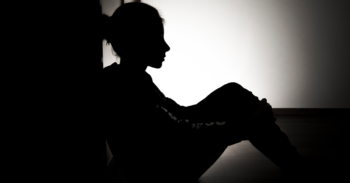 A Conservative MP has introduced a Private Members’ Bill to Parliament to place a duty on local authorities to maintain a register of all children who are not in school. Such a register would close one of the loopholes infamously exploited by proprietors of illegal religious schools. Humanists UK welcomes this move, but urges the Government to go further and reinstate all of the relevant provisions in the Schools Bill, which was dropped in December.
A Conservative MP has introduced a Private Members’ Bill to Parliament to place a duty on local authorities to maintain a register of all children who are not in school. Such a register would close one of the loopholes infamously exploited by proprietors of illegal religious schools. Humanists UK welcomes this move, but urges the Government to go further and reinstate all of the relevant provisions in the Schools Bill, which was dropped in December.
Backbencher Flick Drummond MP, who successfully brought the bill under the ‘ten minute rule’ on Tuesday, reported that there has been a catastrophic increase in the number of children who are severely absent from school. The latest figures on school attendance uncover that 140,000 children were severely absent in summer 2022— the highest number on record. The Bill is timetabled to have its second reading in the autumn.
A significant number of unregistered, illegal schools still operate throughout England and many of these are religious. There are at least 6,000 children who attend them. In many cases, children are made to study religious texts for up to 12 hours a day with no maths, science, or other secular subjects; they are often exposed to extremist literature; and many settings operate in environments that are dirty and unsafe. Physical and sexual abuse is sadly widespread. Proprietors of such settings often claim that children are educated at home, but only attend their establishments for supplementary religious education. The absence of a register of children educated at home means that these claims go uninvestigated.
The Schools Bill was dropped because of controversial aspects in part one, which was about making all schools become academies in the next decade. Part three would have introduced a register of children educated at home (thereby closing one of the loopholes exploited by proprietors of illegal schools), while part four would have given Ofsted more powers to investigate suspected settings, and prosecutors the power to shut them down.
Therefore any new Bill needs to go further than just a register. It also should legislate to amend the definition of full-time education to bring any setting that is the pupil’s primary place of education within the scope of a registered school, and provide Ofsted with sufficient powers to examine the quality of child protection when undertaking inspection of suspected unregistered schools.
Humanists UK Education Campaigns Manager Robert Cann said:
‘I applaud Flick Drummond for introducing this Bill. But while there is a desperate need for a register of children not in school, and we are pleased to see this new Bill, such a register would only go part way towards tackling illegal schools. Even if the Government ends up supporting the Bill – the content of which was last seen in part three of its own Schools Bill – it will only represent half of the story.
‘Part four of the Schools Bill must return too. This would have strengthened Ofsted’s powers to take action on suspected settings, and also tightened up the definitions of what a ‘school’ is. In this way it would help to protect the thousands of vulnerable children trapped in these extreme religious settings. The legislation must return in full and the Government must make a commitment to bring it back before the next election.’
Notes:
For further comment or information, media should contact Humanists UK Campaigns Manager Kathy Riddick at press@humanists.uk or phone 020 3675 0959.
Read our article on how the Independent Inquiry into Child Sexual Abuse delared that unregistered religious schools represent a clear risk of abuse. Of the Report’s two recommendations, the second was that the government should take action.
Read our report on the government’s decision to drop the Schools Bill
Visit the Schools Bill page on the Parliament website.
Read our article on the Queen’s Speech.
Read our exposé on illegal schools operating during lockdown.
Read more about our work on illegal schools, religious education, and collective worship.
Humanists UK is the national charity working on behalf of non-religious people. Powered by 100,000 members and supporters, we advance free thinking and promote humanism to create a tolerant society where rational thinking and kindness prevail. We provide ceremonies, pastoral care, education, and support services benefitting over a million people every year and our campaigns advance humanist thinking on ethical issues, human rights, and equal treatment for all.
